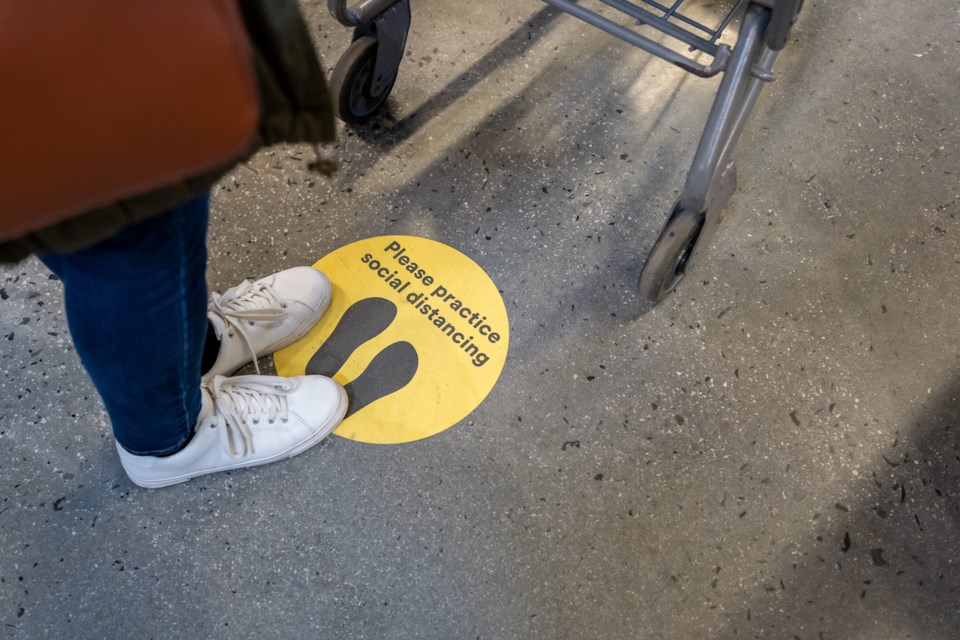The Sea to Sky Corridor has seen 18 confirmed cases of COVID-19 since the start of the pandemic, and there are currently no active cases in the region that Vancouver Coastal Health is tracking, medical health officer Dr. Geoff McKee told The Squamish Chief on Friday.
The 18 lab-confirmed cases were found in the region that stretches from Lions Bay to the southern Stl’atl’imx communities.
"While these numbers may not include every case — because not everybody was tested through the whole time and not everybody is going to go get tested — I think it shows that rural areas were not as impacted as other urban areas," McKee said.
He said that cases in the rural (not Lower Mainland) areas of the health authority made up only three percent of total cases.
The health authority is holding a Facebook Live event on Tuesday, July 7 for residents of Sea to Sky Corridor communities to allow them to ask any public health questions they might have about COVID-19.
McKee said the numbers reflect that residents have done a good job of following the advice of the provincial health officer, but that needs to continue.
"We have not only flattened the curve, we have suppressed the curve in many ways," he said. "We need to continue to be vigilant and take precautions. As [the numbers] only represent the cases we have identified and there will continue to be some risk until we get some treatment or vaccine."
We aren't going back to normal, he added, but a new normal
Regarding masks, McKee said that it is important to note that they are not effective at protecting the wearer, but may be recommended when it is difficult to maintain distance for a prolonged period of time, such as at some workplaces or healthcare settings.
Masks can protect others from the wearer's droplets.
The recommendation to wear a mask also depends on the level of risk and transmission in the community. The higher the risk, the more likely such a recommendation.
McKee said for B.C., he does think it is safe for many businesses to open as long as they are developing and following COVID-19 safety plans.
"There is a lot of guidance out there for businesses looking to reopen safely," he said, adding that VCH has a lof of this information on its website and this is a topic he hopes to expand on during the online session on Tuesday.
McKee said that the goal is to avoid a so-called second wave of the virus in the fall, something he thinks is possible.
"There's always that risk of a second wave or little spikes in cases that we see — sometimes these can be related to individual clusters or small outbreaks in little areas," he said. "We always need to be cognizant of that risk as we work together to relax things but keep precautions in place. But you know, I am really hopeful, based on the way British Columbians have responded... that we don't see that."
If the second round of cases does start, the health authority is prepared, he added.
When people with COVID-19 go to Squamish Hospital, whether that person is transferred to a hospital in the Lower Mainland or not is based on how sick they are.
"In many cases, people can present with very mild symptoms, so they can safely isolate at home. Obviously, we are still following up to ensure that isolation precautions are in place for anyone who has been diagnosed with COVID-19," he said.
The health authority also always follows up with anyone who may have been exposed to the virus from the confirmed case.
People who are sicker would be transferred to a hospital in the Lower Mainland.
Regarding travel, McKee said that he believes it can be done safely within the province, as long as travellers are respectful and take necessary precautions.
He pointed to provincial health officer Dr. Bonnie Henry's travel tips as good advice to follow.
"[Follow] tips such as do your research on the community and places you plan to travel before you go to ensure what is open, as well as businesses and the community's expectations; keeping your stay short and being as self-sufficient as you can by bringing supplies; and, keeping up with precautions, including physical distancing and washing your hands regularly. We aren't leaving those [prcautions] behind when we are going on vacation."
Most important is to stay home when you feel sick and call 811 or a healthcare provider if your symptoms match up with COVID-19 according to the provincial BC COVID-19 Self-Assessment Tool found at bc.thrive.health/covid19.
McKee's 30-minute Sea to Sky information session on the virus will be held at 12:30 p.m. Tuesday and will be hosted on the Vancouver Coastal Health Facebook page at https://www.facebook.com/VCHhealthcare/.




